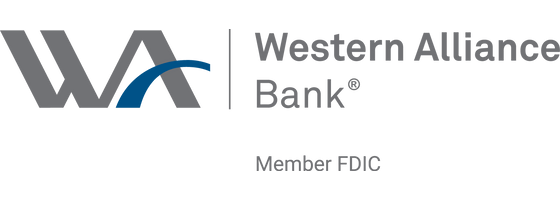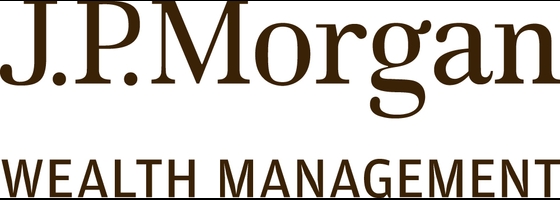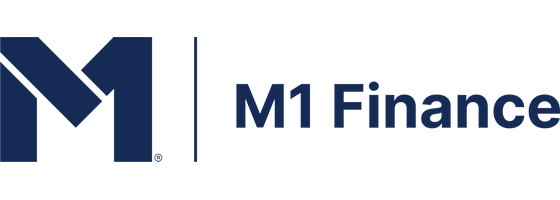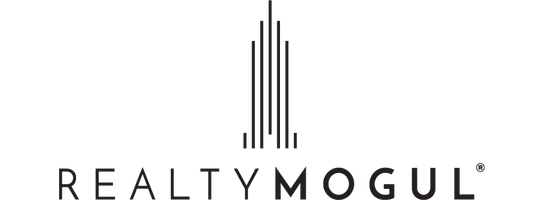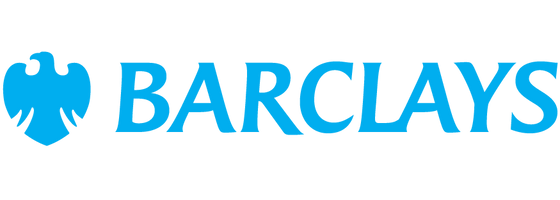10 Ways to Invest $20,000

Our evaluations and opinions are not influenced by our advertising relationships, but we may earn a commission from our partners’ links. This content is created by TIME Stamped, under TIME’s direction and produced in accordance with TIME’s editorial guidelines and overseen by TIME’s editorial staff. Learn more about it.
If you suddenly have an extra $20K in your bank account—from a work bonus, inheritance, or a lucky lottery ticket—you can put that money to work instead of letting it burn a hole in your pocket.
While the best way to invest $20K depends on your goals and risk tolerance, here are 10 options to consider, from paying off debt to investing in fine art.
Paying off debt might not seem like an investment, but it can provide a better return than you might earn elsewhere. For example, the average credit card interest rate is 22.77% APR, according to the most recent data from the Federal Reserve. While you might be able to earn such high returns occasionally, it would be difficult for most investors to hit that mark consistently.
Using your $20K to pay off debt can save you hundreds of dollars a month in interest charges and help you get on financial track. As a bonus, paying off debt also boosts your credit score, leading to better deals on credit cards, loans, insurance premiums, and more.
On the other hand, rather than allocating $20,000 solely towards clearing credit card debt, consider leveraging a balance transfer credit card to consolidate your debt, allowing you to redirect that some of you money towards alternative investment opportunities.
RELATED: Best Balance Transfer Credit Cards
card_name is a solid flat-rate earnings card with annual_fee_disclaimer annual fee. Although the 1.5% cash back doesn’t seem impressive at first glance, it becomes more valuable when combined with other rewards cards from Chase that can be redeemed for a far greater value.
This card is recommended for everyday use, whether for doctor copays or big box store purchases. It can be a large earner for cardmembers who want to get the most out of their everyday spending.
Introductory Offer:
Intro Card Rewards:
After the First Year or $20,000 Spent Card Rewards:
Additional Benefits:
Member FDIC
If your emergency fund is a little short—or you haven't started one yet—now may be the perfect opportunity to change that. An emergency fund helps you stay afloat if you lose your job or have unexpected expenses like home repairs or medical bills. The fund should cover three to six months' worth of living expenses, though you may need more depending on your lifestyle, job stability, and family needs. A high-yield savings account can be an excellent place to park an emergency fund. You can access your money quickly while earning upwards of 5% APY in the best high-yield savings accounts.
4.46%†
Retirement accounts like IRAs (traditional or Roth) and 401(k)s offer a tax-advantaged way to build your nest egg. With $20K, you can increase or max out your annual contributions. Start by contributing enough to your 401(k) to get the full match if your employer offers this benefit. Some employers match contributions on a dollar-for-dollar basis, while others provide a partial match, such as 50%, or $0.50 on the dollar up to a certain amount of your salary. Either way, a match is like getting free money, so it pays to take advantage of it.
Next, max out your IRA to round out your retirement account contributions. Here are the IRA and 401(k) contribution limits for 2023 and 2024:
| 2023 | 2024 | |
|---|---|---|
IRA contribution | $6,500 | $7,500 |
IRA contribution if 50 or older | $7,000 | $8,000 |
401(k) employee contribution | $22,500 | $23,000 |
401(k) employee contribution if 50 or older | $30,000 | $30,500 |
401(k) employee + employer contribution | $66,000 | $69,000 |
401(k) employee + employer contribution if 50 or older | $73,500 | $76,500 |
It's important to note that when you have multiple IRAs, the limits apply to your combined contributions. For example, let’s say you're under age 50 and have a traditional IRA and a Roth IRA. If you've already contributed $4,000 to a Roth IRA in 2023, you could contribute up to $2,500 to your traditional IRA (based on the $6,500 annual limit). The same rule applies to 401(k)s. You can split the $22,500 yearly employee contribution between plans if you have multiple 401(k)s through different employers.
Get a 3% match on IRA contributions each year with Robinhood Gold (subscription fee applies), or 1% without.
IRA transfers and 401(k) rollovers also get a 3% match through April 30 with Robinhood Gold, or 1% without.
RELATED: Best Roth IRA Accounts
Index funds bundle baskets of individual securities into a single investment that tracks the performance of a specific market index. The most popular index funds track the S&P 500, but other indexes are also used, including the Russell 2000, Dow Jones Industrial Average (DJIA), and Nasdaq 100. Instead of hand-selecting the investments the fund holds, the fund's manager buys all (or a representative sample) of the securities in the underlying index.
Index funds can be a simple way to grow your retirement or brokerage account, offering low costs, broad diversification, and the potential for attractive returns. Historically, index funds consistently outperform actively managed mutual funds in the short term and long run.
New customers earn 5.25% APY for a limited time. No minimum balance & cancel anytime. Terms apply.
*limited time offer and subscription fee applies
A sum of $20K is more than enough to get started with most online brokers. Depending on the broker, you'll have access to stocks, bonds, options, mutual funds, exchange-traded funds (ETFs), cryptocurrencies, commodities, futures, and more. A full-service broker is worth a look if you want help managing your investments or you already work with a private banker or wealth manager. Otherwise, consider a discount broker like J.P. Morgan Self-Directed Investing to take advantage of low costs, a broad range of research tools, and an easy-to-use platform for placing trades. Another perk: J.P Morgan now offers fractional trading, so you can invest in eligible S&P 500 and Nasdaq 100 stocks and ETFs starting with just $5, regardless of the share price.
INVESTMENT AND INSURANCE PRODUCTS ARE: NOT A DEPOSIT • NOT FDIC INSURED • NO BANK GUARANTEE • MAY LOSE VALUE
If you don't have the time, interest, or expertise to choose and manage your own investments—or you prefer a hands-off approach—consider using a robo-advisor like M1 Finance. A robo-advisor uses an algorithm to build a diversified investment portfolio based on your time horizon, risk tolerance, and financial goals. Many robo-advisors have features like automatic rebalancing and tax-loss harvesting, and some offer access to human advisors.
Fine-art investing used to be reserved for the wealthy, but online platforms like Masterworks have democratized art as an asset class to make it accessible to a broader audience. Instead of buying and managing an entire piece (or collection) on your own, Masterworks lets you invest in fractional shares of fine artworks from artists like Banksy, Basquiat, Picasso, and more.
You'll work one-on-one with a Masterworks financial advisor to determine a suitable investment, and then the company will select, buy, securitize, and store the artwork. After three to 10 years, Masterworks looks for a good opportunity to exit the investment and sells the work directly to top collectors in the art world—and you receive your pro rata proceeds after fees. You can also cash out early by selling your shares on Masterworks' trading market, though the company doesn't guarantee the market will provide enough liquidity to monetize your investment.
1.5% annual management fee.
20% of any profits.
One-time cash “expense allocation”
While $20K won't get you very far in today's real estate market, it can buy shares in a real estate ETF or REIT—a real estate investment trust. REITs are companies that own and operate income-generating properties such as apartment buildings and retail centers. Having $20K is also enough to get started in real estate crowdfunding, which lets you pool your money with other investors (through online fintech platforms) to buy properties as a group and share in the profits.
Realty Mogul is a platform that offers access to REITs and other types of real estate investments.
Investing can be overwhelming, especially when you don’t have the time or desire to explore your options, or the confidence to make suitable choices. If you could benefit from guidance and expertise, consider investing in a financial advisor who can build a plan for your finances. Financial advisors can advise you on retirement planning, tax planning, investment advice, and more. So, whether you want to invest for retirement or a shorter-term goal, a financial advisor can help get (and keep) you on track.
When choosing a financial advisor, be sure to consider their credentials and how they’re compensated. It’s also important to consider whether they’re a fiduciary who will act in your best interest—or a non-fiduciary who might act in their best interest. For help finding a financial advisor, ask your friends, family, and peers for recommendations, or use an online service like WiserAdvisor that matches you with vetted financial advisors in your area.
Find the right financial advisor with WiserAdvisor
Find the right financial advisor with WiserAdvisor
With the best CD rates topping 5% APY, CDs can be a low-risk way to grow your money. A CD ladder is a good option if you don't want to put all your cash in a single CD. With a CD ladder, you divide your deposit between multiple CDs with various maturities—such as one, two, three, four, and five years. As each CD matures, you can either cash it out or renew it at the then-current rate. The ladder lets you manage changing interest rates and offers more liquidity than putting your cash into one long-term CD.
According to a new report from the Education Data Initiative, the average cost of attendance at a public four -year in-state institution is $26,027 per year, or $104,108 over four years. The sticker price jumps to $55,840—or $223,360 over four years—for students at private, non-profit universities. Investing your $20K in a 529 college savings plan can be a smart way to save for education expenses, and not just at the college level. You can also use a 529 plan to pay up to $10,000 in yearly tuition expenses at K-12 schools.
Investing can provide you with an income source and fund your nest egg. Most importantly, investing grows your wealth so you can lead the lifestyle you want and leave a legacy to your loved ones.
While $20K may not let you quit your job, it's enough to start building financial security, whether you max out your retirement accounts, invest in fine art, or divide your cash between multiple investments.
Keep in mind that you can lose money by not investing it, thanks to inflation. For example, say you park $20K in a checking account that earns zero interest. If the overall inflation rate is 3%, your real return would be negative—meaning you would be losing money. While keeping enough money in your checking account to cover your bills and everyday spending is OK, it's not the place to stash cash that could be working harder elsewhere.
Deciding the best way to invest $20K can be daunting, but don't let that stop you from making a decision. When in doubt, put your money in a high-yield savings account while researching and comparing your options. That way, you can earn a competitive yield, maintain easy access to your cash, and be ready to invest when the right opportunity comes.
The information presented here is created by TIME Stamped and overseen by TIME editorial staff. To learn more, see our About Us page.
